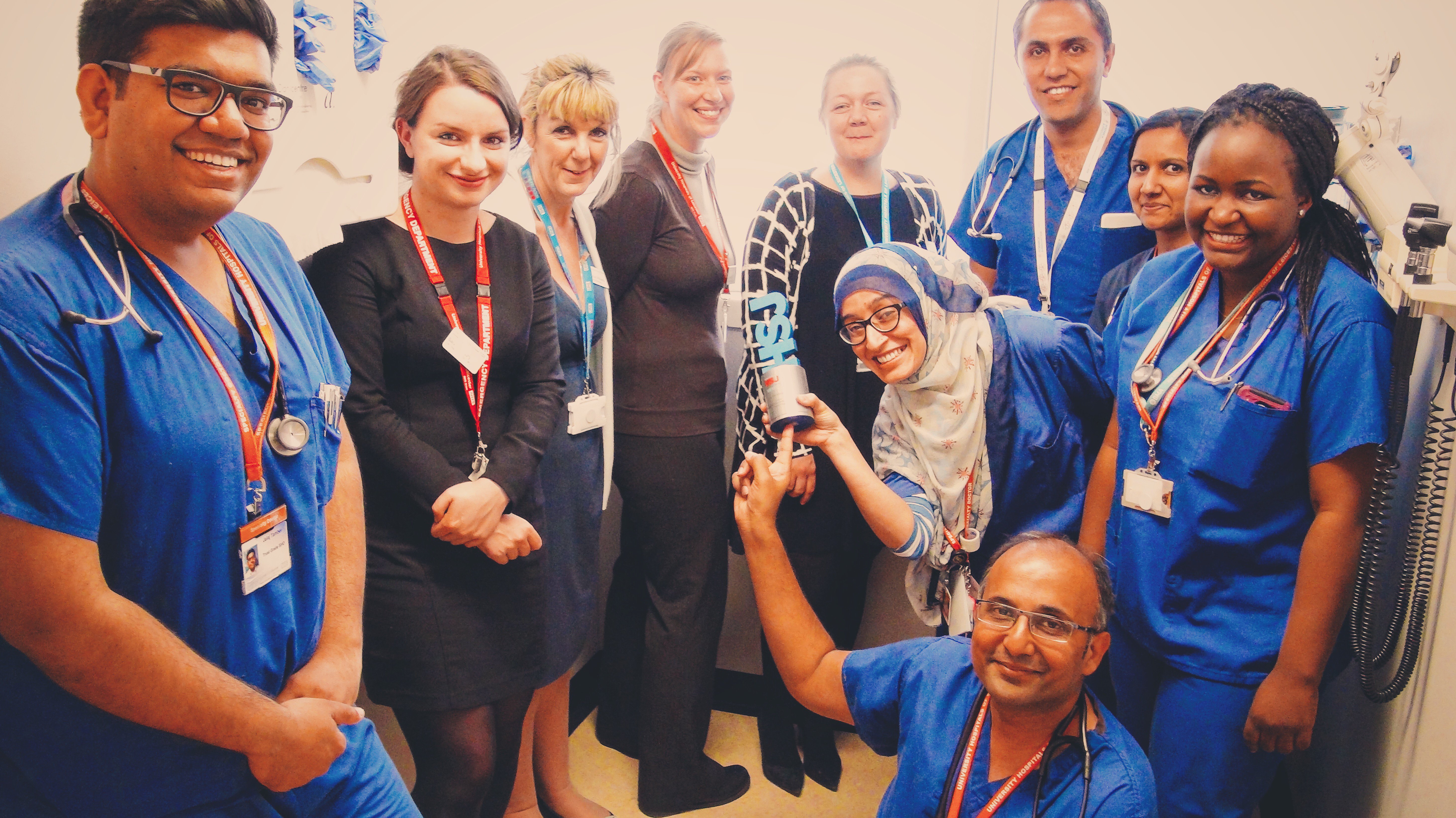- LEAD-it Leicester Emergency Advancement and Development of International Training
- LEAD-it (continued) - The experience of international medical graduates
The LEAD-it approach to recruitment and retention of medical staff at University Hospitals of Leicester Emergency Department (ED) has made great improvements to patient care and staff morale by employing international medical graduates (IMG’S) who want to learn and expand their knowledge to improve and enhance patient care. The on-going success of the project is measured by the following key outcomes:
- Reduction in the number of vacant training/trust posts. Since the project started in 2013 , 117 IMG’s have been appointed to ED. This was achieved by turning locum spend into substantive posts after mapping activity against staffing numbers for the department to develop a safe staffing model. The chart shows the fill rate for posts has improved greatly as well as the number of total posts increasing. A key feature has been the ability after a year in ED for the staff to move to their speciality interest within the Trust and has therefore also helped to improve the fill rates of other specialities.
- Reduction in temporary staff usage lowering premium spend. The graph really speaks for itself and since August 2014 the ED has not used a temporary locum to fill a junior medical staff vacancy.
- ED productivity improvements with international graduates compared to temporary staff. The number of patients the IMG’s saw over a year’s period was reviewed taking into account , their first 3 months is a supernumerary/adjusting and learning phase of their job vs temporary/locum staff. There was a 40% increase of patients seen by IMG’s helping to improve patients outcomes, enabling patients to be seen in a more timely manner and enhancing patients experience.
- Reduction in risk to patients (safety), service (targets) & Trust (reputation) due to the number of vacancies / use of temporary staff which are now filled by this scheme. With a large number of medial staffing gaps comes a risk and this was reduced by filling these posts with substantive staff. We also reviewed the number of incidents linked to the use of temporary staff as well as those relating to lack of suitably trained/skilled staff. Despite a large increase in activity we saw a reduction in this category.
- Improved reputation of ED as a good place to work and be trained as evidenced by an increase in the number of applicants for advertised posts. In 2013 when the project commenced, we used recruitment agencies to help attract CV’s and over the 3 years have got to the end result where we now only use NHS jobs as a platform to apply for a post along with social media and recommendations.
The University Hospitals of Leicester NHS Trust team won the 2016 HSJ Workforce value award

